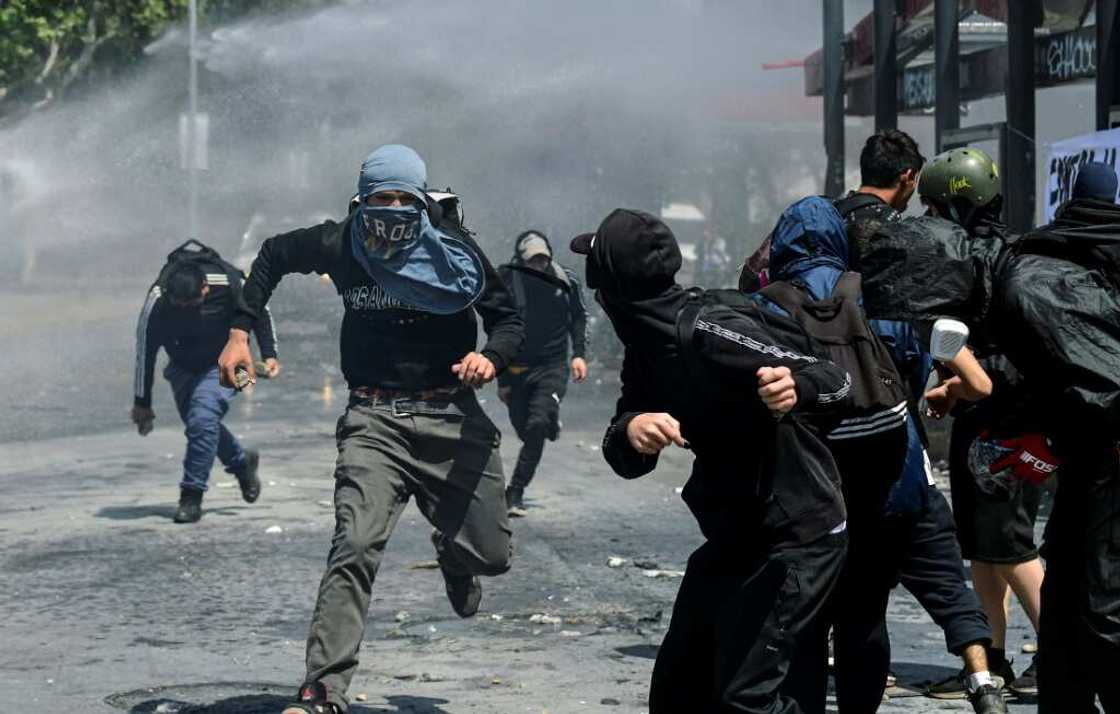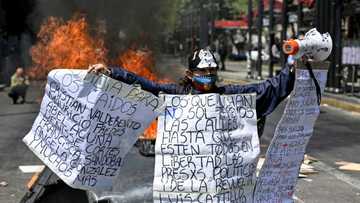200 arrested, dozens injured in Chile protests

Source: AFP
PAY ATTENTION: Click “See First” under the “Following” tab to see Legit.ng News on your Facebook News Feed!
Some 200 people were arrested and dozens injured as social inequality protests around Chile descended into clashes and looting overnight, police said Wednesday.
In the capital Santiago, protesters set fire to a truck and stole two municipal buses, also looting supermarkets, a pharmacy and a toy store -- 15 commercial premises in all.
Two dozen police officers and 18 civilians were injured in clashes at 150 demonstrations that gathered some 2,300 protesters countrywide, with 195 arrests made, according to Deputy Interior Minister Manuel Monsalve.
The protests started Tuesday with burning barricades around Santiago on the anniversary of a social uprising that demonstrators say has not yet yielded the desired societal change.
Car traffic was disrupted, metro stations shuttered and school pupils sent home early, with 25,000 police deployed countrywide to keep the peace -- 5,000 of them in the capital, where several hundred demonstrators took to the streets.
The protests came exactly three years after the start of a mass revolt against a rise in metro fares in 2019 that quickly escalated into a general clamor for better conditions and social equality.
PAY ATTENTION: Follow us on Instagram - get the most important news directly in your favourite app!
The government suspended the price hike, but protests continued, and dozens were killed over months of clashes. Hundreds of people were injured.
The 2019 demonstrations kickstarted reforms that included the government agreeing to the drafting of a new constitution to replace the one inherited from the military dictatorship of Augusto Pinochet and perceived as market-friendly.

Source: AFP
In December, Chile elected leftist President Gabriel Boric, who supported the 2019 uprising and subsequent constitution-writing process.
But last month, nearly two-thirds of voters rejected the proposed draft despite the new revolutionary mood, amid concerns that parts of the document were too far-reaching.
A constitutional provision to legalize abortion was a key stumbling block in the conservative, majority-Catholic country.
Boric, a former student leader, came to office with promises of turning the deeply unequal country into a greener, more egalitarian "welfare state."
Source: AFP



